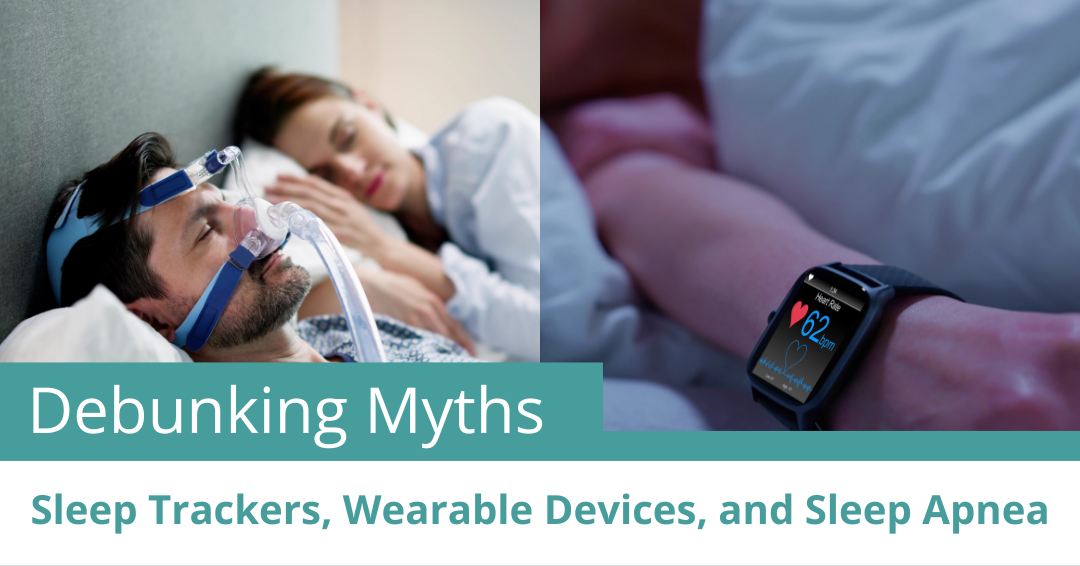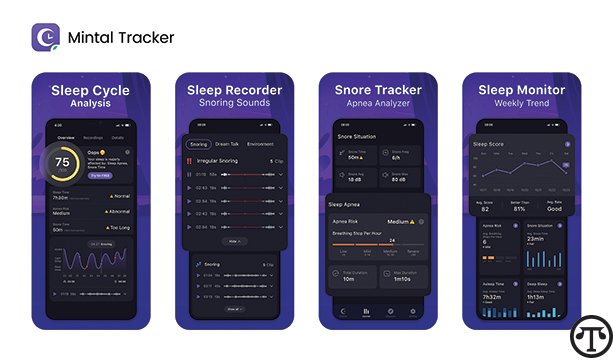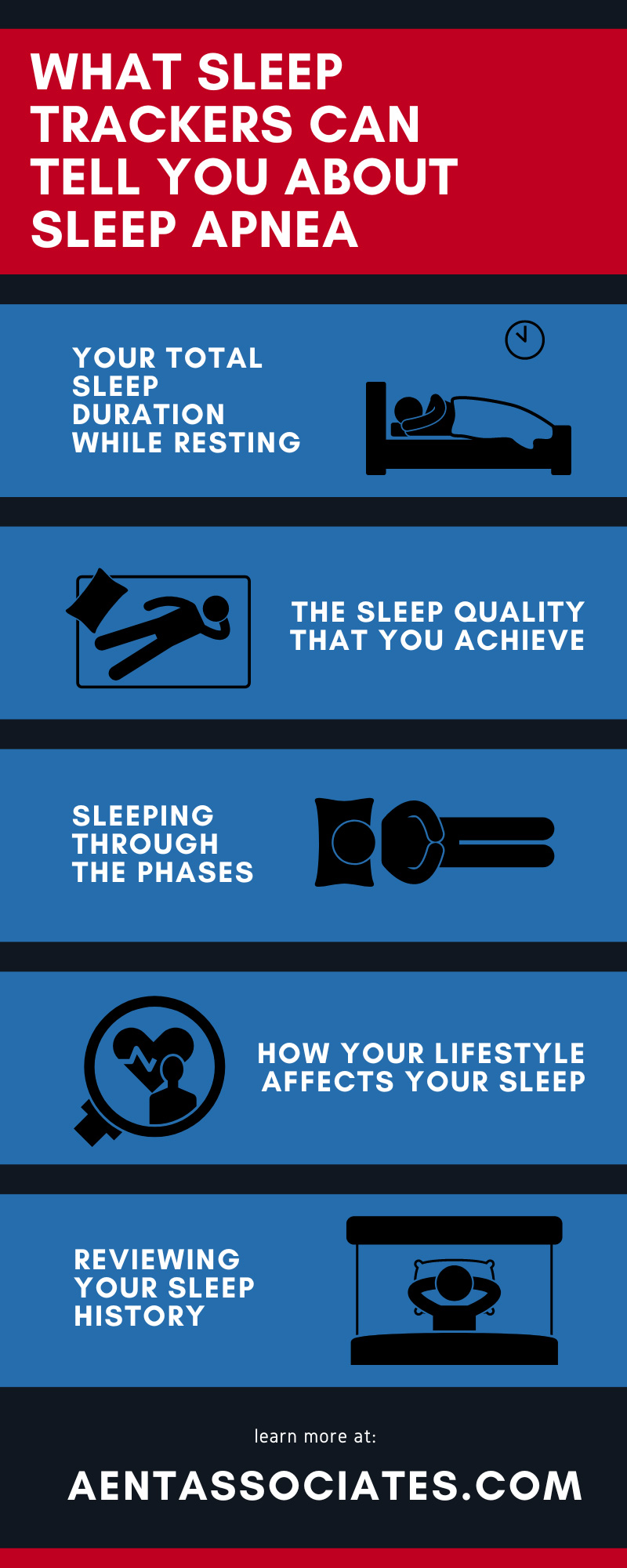Sleep trackers for sleep apnea change how people watch their health. Can a simple wearable device find sleep problems and help with a serious condition like sleep apnea? If you want to know how correct or helpful these devices are, this information will help.
Sleep trackers equipped with oxygen sensors and heart rate monitors can detect abnormal patterns linked to sleep apnea. Devices like the Withings Sleep Analyzer, Fitbit Sense, and Apple Watch track disruptions, breathing rate, and sleep stages.
Experts such as Dr. Michael Breus, “The Sleep Doctor,” support using smart tech for better sleep insights. But the story doesn’t end with a few popular gadgets. There’s a growing list of cutting-edge tools designed to help you breathe and sleep better every night.
Let’s dive into the world of the best sleep trackers for sleep apnea, because a restful night could start with just the right device.

Credit: www.unityhealthnetwork.org
Understanding Sleep Apnea
Sleep apnea is a common but serious sleep disorder. It affects millions of people worldwide. Understanding this condition can help you manage it better.
What Is Sleep Apnea?
Sleep apnea happens when your breathing stops and starts during sleep. This can make you tired during the day. There are three main types of sleep apnea:
- Obstructive Sleep Apnea (OSA): The most common type. It occurs when throat muscles relax too much.
- Central Sleep Apnea (CSA): It happens when your brain doesn’t send signals to breathe.
- Complex Sleep Apnea Syndrome: A mix of both OSA and CSA.
Common Symptoms
Recognizing the symptoms of sleep apnea is crucial. Some people may not know they have it. Common symptoms include:
- Loud snoring
- Gasping for air during sleep
- Morning headaches
- Excessive daytime sleepiness
- Difficulty staying asleep
These symptoms can affect your daily life. If you notice these signs, consult a doctor.
Why Quality Sleep Matters
Getting quality sleep is crucial for everyone. It affects our daily life. For those with sleep apnea, quality sleep is even more important. Sleep trackers can help manage this condition. They monitor sleep patterns and provide useful data.
Health Implications
Quality sleep impacts our physical health. Poor sleep can lead to various health issues:
- Heart Disease: Inadequate sleep increases the risk of heart problems.
- Obesity: Poor sleep can lead to weight gain.
- Diabetes: Lack of sleep affects blood sugar levels.
With sleep apnea, these risks can be higher. Sleep trackers help monitor the condition. They provide data to improve sleep quality.
Mental Well-being
Quality sleep is essential for mental health. Poor sleep affects mood and mental clarity. For those with sleep apnea, the impact is more significant. Sleep trackers can help in several ways:
- Stress Reduction: Better sleep helps reduce stress levels.
- Improved Focus: Quality sleep enhances concentration.
- Emotional Stability: Good sleep supports emotional balance.
Sleep trackers offer insights to improve mental well-being. They help identify issues and suggest solutions.
How Sleep Trackers Can Help with Sleep Apnea
Sleep trackers are essential tools for people with sleep apnea. They help monitor sleep patterns and identify disruptions. This data can assist in managing sleep apnea effectively.
How They Work
Sleep trackers use various sensors to monitor sleep. These sensors track heart rate, breathing, and movement. The collected data is analyzed to detect sleep disturbances.
Many sleep trackers sync with smartphones. This allows users to view and analyze their sleep data. Some trackers also provide recommendations for improving sleep.
Types Of Sleep Trackers
There are different types of sleep trackers available. Each type has unique features and benefits.
- Wearable Trackers: These devices are worn on the wrist. They track movements and heart rate.
- Bedside Trackers: These devices are placed near the bed. They monitor breathing and sleep environment.
- Under-Mattress Trackers: These are placed under the mattress. They track movements and breathing patterns.
| Type | Features | Benefits |
|---|---|---|
| Wearable Trackers | Heart rate, movement | Portable, continuous monitoring |
| Bedside Trackers | Breathing, environment | Non-intrusive, detailed data |
| Under-Mattress Trackers | Movements, breathing patterns | Comfortable, accurate |
Choosing the Best Sleep Tracker for Apnea
Choosing the right sleep tracker for sleep apnea can be challenging. There are several features to consider. This section will guide you through the essential features to look for.
Accuracy Matters: How Reliable Are Sleep Apnea Trackers?
Accuracy is crucial for sleep trackers. Look for devices with proven accuracy. Devices with clinical validation are best. Accurate devices can detect sleep apnea episodes. These trackers monitor breathing, heart rate, and oxygen levels. Reliable data helps in managing sleep apnea effectively.
Comfort & Usability: Which Design Fits Your Needs?
Comfort is key for a good night’s sleep. Choose a tracker that feels comfortable. Wearable devices should be lightweight. Non-wearable trackers should be discreet. Comfortable devices ensure you sleep without interruptions. Consider materials that are skin-friendly. Ensure the tracker fits well without being too tight.
Key Data Insights to Look For (Oxygen Levels, Snoring, Disruptions)
Data insights help you understand your sleep patterns. Look for trackers that offer detailed reports. These reports should include sleep stages and apnea events. Some trackers provide tips for better sleep. Check if the tracker syncs with mobile apps. Easy-to-read graphs and charts are beneficial.
| Feature | Description |
|---|---|
| Accuracy | Clinical validation monitors breathing, heart rate, and oxygen levels. |
| Comfort | Lightweight, skin-friendly, well-fitting, non-intrusive. |
| Data Insights | Detailed reports, sleep stages, apnea events, mobile app sync. |
Top-Rated Sleep Trackers for Sleep Apnea (2025 Guide)
Sleep apnea can disrupt your rest and affect your health. Using a sleep tracker can help monitor your sleep patterns and identify issues. Sleep trackers come in different forms, including wearables and non-wearable options. Here are some of the top sleep trackers for sleep apnea.
Best Wearables
Wearable sleep trackers are convenient and easy to use. They usually come in the form of watches or bands. Below are some popular wearable options:
- Fitbit Sense: Tracks sleep stages and heart rate. It also provides detailed sleep insights.
- Withings Sleep: Offers sleep cycle analysis and snore detection. It integrates with health apps.
- Garmin Vivosmart 4: Monitors oxygen levels and sleep cycles. It also tracks stress levels.
Non-wearable Options
Non-wearable sleep trackers are designed for those who prefer not to wear devices. These trackers are placed under the mattress or on the bedside table. Here are some top non-wearable options:
- Beddit Sleep Monitor: Sits under your sheet to track sleep patterns. It also measures heart rate and snoring.
- SleepScore Max: Uses sonar technology to analyze sleep. It provides personalized sleep improvement tips.
- Withings Sleep Analyzer: Placed under the mattress, it tracks sleep cycles and detects sleep apnea.
Choosing the right sleep tracker can help manage sleep apnea effectively. Whether you prefer wearables or non-wearables, these devices offer valuable insights to improve your sleep quality.
Integrating Sleep Trackers Into Your Routine
Integrating a sleep tracker into your daily routine can help manage sleep apnea. It monitors your sleep patterns and provides valuable data. This helps you understand and improve your sleep quality. Let’s explore how to set up and interpret data from sleep trackers effectively.
Setting Up Your Sleep Tracker for Optimal Results
Setting up your sleep tracker is simple and quick. Follow these steps:
- Charge the Device: Ensure your sleep tracker is fully charged.
- Wear it Properly: Place the tracker on your wrist or under the mattress.
- Sync with App: Connect the tracker to its dedicated app on your phone.
- Calibrate Settings: Customize settings like bedtime and wake-up time.
Proper setup ensures accurate data collection. This is crucial for managing sleep apnea.
How to Read & Analyze Your Sleep Data
Interpreting the data from your sleep tracker is essential. This helps you understand your sleep patterns. Key metrics to focus on include:
- Sleep Duration: Total time spent sleeping.
- Stages: Time spent in light, deep, and REM sleep.
- Sleep Quality: Frequency of sleep disturbances.
- Heart Rate: Average heart rate during sleep.
Review these metrics regularly to spot trends or issues. If you notice irregularities, consult your doctor. They can provide further insights and adjustments to your routine.
Integrating sleep trackers and interpreting the data is vital. It helps manage sleep apnea and improves sleep quality.
Benefits Of Using Sleep Trackers
Sleep trackers are helpful tools for managing sleep apnea. They offer many benefits. These devices help you understand your sleep patterns. They also aid in the early detection of sleep issues.
Improved Sleep Patterns
Using sleep trackers can help you improve your sleep patterns. These devices monitor your sleep stages. They show you when you are in deep sleep, light sleep, or awake.
This information helps you adjust your bedtime routine. You can see which habits affect your sleep quality. For example, you might find that reading before bed helps you sleep better.
Here is a simple table showing what sleep trackers can monitor:
| Feature | Description |
|---|---|
| Sleep Stages | Tracks deep, light, and REM sleep |
| Heart Rate | Monitors your heart rate during sleep |
| Breathing Patterns | Checks for irregular breathing |
Early Detection
Sleep trackers can help with the early detection of sleep apnea. They monitor your breathing patterns. If there are irregularities, the device can alert you. Early detection means you can seek treatment sooner.
Here are some signs sleep trackers can detect:
- Frequent awakenings
- Snoring
- Gasping for air
Early detection can prevent serious health problems. It can reduce risks like heart disease and high blood pressure. Using a sleep tracker is a proactive way to manage your health.
Challenges And Limitations
Sleep trackers for sleep apnea can be very helpful. They monitor and record sleep patterns. But they are not perfect. Users must be aware of the challenges and limitations. This section will address these issues.
Potential Drawbacks
Sleep trackers are not always 100% accurate. They might misinterpret movements as wakefulness. Sometimes, they cannot detect all breathing issues.
| Drawback | Explanation |
|---|---|
| Accuracy | Trackers can misinterpret small movements. |
| Battery Life | Some devices need frequent charging. |
| Cost | High-quality trackers can be expensive. |
User Experience
User experience varies with different sleep trackers. Some users find them uncomfortable. Wearing a device all night can be annoying.
Trackers can also have complicated interfaces. Not all users find them easy to use. A simple, user-friendly design is essential.
- Comfort: Some devices are bulky.
- Ease of Use: Complicated interfaces can frustrate users.
- Data Interpretation: Users may struggle to understand the data.
- Choose a comfortable device.
- Pick one with a simple interface.
- Ensure you understand the data presented.
Consider these points before purchasing a sleep tracker. They will help you make a better decision.

Credit: www.mynewstouse.com
Future Of Sleep Tracking Technology
The future of sleep tracking technology promises exciting advancements. Sleep trackers for sleep apnea are evolving rapidly, integrating cutting-edge innovations. These advancements aim to improve sleep quality, health, and overall well-being.
Innovations On The Horizon
Sleep trackers are becoming more advanced. Artificial intelligence and machine learning are now part of sleep tracking. These technologies help in providing more accurate data.
Wearable devices are getting smarter. They can now monitor not just sleep patterns but also oxygen levels and heart rates. Some trackers are even able to detect snoring and breathing irregularities.
Non-wearable solutions are also emerging. These include bed sensors that track sleep without any physical contact. These sensors can monitor your movements, heart rate, and breathing.
Potential Improvements
Future sleep trackers could become more personalized. They might offer customized sleep advice based on your unique sleep patterns. This could lead to better sleep quality and health outcomes.
Battery life is another area for improvement. Longer battery life means less frequent charging, making the devices more user-friendly.
Improved data accuracy is crucial. With more precise data, sleep trackers can provide better insights into sleep apnea.
Here is a table showing some potential improvements:
| Current Feature | Potential Improvement |
|---|---|
| Battery Life | Longer battery life |
| Data Accuracy | More precise data |
| Wearable Devices | Enhanced comfort and functionality |
Sleep trackers might also integrate with smart home devices. Imagine your lights dimming automatically when your tracker detects you are ready to sleep. Or your thermostat adjusting to your ideal sleep temperature.
Future advancements in sleep tracking technology promise to make managing sleep apnea easier. These innovations could significantly enhance sleep quality and overall health.

Credit: www.aentassociates.com
Frequently Asked Questions
Can A Sleep Tracker Detect Sleep Apnea?
Sleep trackers can indicate potential sleep apnea symptoms. They monitor sleep patterns and disruptions, suggesting further medical evaluation. Always consult a doctor for an accurate diagnosis.
Is There A Sleep Apnea Symptom Tracker?
Yes, there are sleep apnea symptom trackers available. These tools help monitor symptoms and improve diagnosis accuracy.
Is There A Device That Can Check Sleep Apnea?
Yes, devices like CPAP machines, home sleep apnea tests, and wearable sleep trackers can check for sleep apnea.
What Is The Best Watch For Sleep Apnea Monitoring?
The best watch for sleep apnea monitoring is the Withings ScanWatch. It tracks SpO2 levels, heart rate, and sleep patterns accurately.
Conclusion
Sleep trackers offer valuable insights for managing sleep apnea. They help monitor sleep patterns and detect irregularities. By using these tools, individuals can improve their sleep quality and overall health. Investing in a reliable sleep tracker can make a significant difference in managing sleep apnea effectively.

A passionate tech blogger and the founder of Best Tech View, a dynamic platform dedicated to all things technology. With a keen interest in the tech, Ahmad strives to provide insightful and engaging content on the latest tech trends, and breakthroughs.
